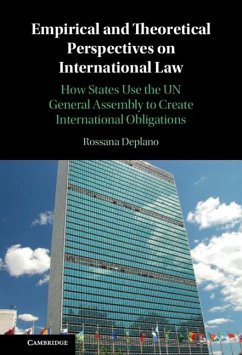The book examines the processes through which the resolutions adopted by the UN General Assembly acquire legal significance through state practice. By using an empirically-grounded method of inquiry, it examines how states attribute legal significance to resolutions in three different contexts: at the time of adoption, within domestic law and in international practice. The book shows that, contrary to the existent theories on the legal significance of resolutions, the General Assembly is not a unitary actor. It also demonstrates that the concept of legal significance of resolutions is not predetermined or static. While resolutions are often framed in normative language, they acquire legal significance only to the extent that states find it desirable or convenient, depending on context and circumstances. Consequently, the attribution of legal significance to resolutions turns out to be a manifestation of state will to abide by their content, not the will of the General Assembly.
Dieser Download kann aus rechtlichen Gründen nur mit Rechnungsadresse in A, B, BG, CY, CZ, D, DK, EW, E, FIN, F, GR, HR, H, IRL, I, LT, L, LR, M, NL, PL, P, R, S, SLO, SK ausgeliefert werden.
Hinweis: Dieser Artikel kann nur an eine deutsche Lieferadresse ausgeliefert werden.









